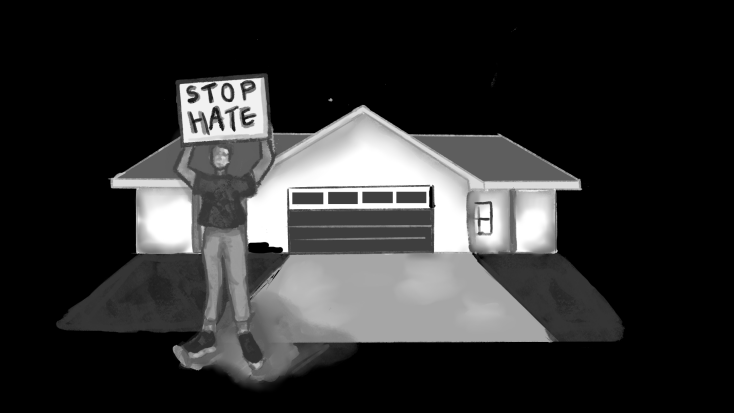The Stop Hate in Real Estate movement was announced on Sept. 26 with the goal of preventing discrimination in real estate practices for minorities. The initiative was originally formed by the LGBTQ+ Real Estate Alliance and since then has branched out to include the Asian Real Estate Association of America, National Association of Hispanic Real Estate Professionals, and WomanUp.
Erin Morrison, LGBTQ+ Real Estate Alliance president and co-founder of Stop Hate in Real Estate discussed her motivation behind starting the movement.
“We were noticing a lot of our members and a lot of their real estate clients were talking about the fact that there was a lot of anti-LGBTQ+ legislation out there that was making them fearful ,” Morrison said. “They [members of the movement] quickly realized this isn’t just about the LGBTQ+ community — This we were seeing across different marginalized communities, and so we thought that by reaching out to them and proposing this collaboration we could have more voices.”
The movement comes at a time of great political turmoil for minority groups. The Human Rights Campaign declared a “National State of Emergency” for LGBTQ+ Americans on Sept. 18 due to 75 anti-LGBTQ+ bills that were signed in 2023. The National Fair Housing Alliance additionally reported in 2022 that there were 31,216 housing discrimination complaints, an 8.7% increase from 2020 where 28,712 complaints were lodged. Moreover, Pew Research reported in 2021 that 81% of Americans agree that Black people face discrimation as well as 76% agreeing that Hispanic people do.
Palo Alto High Schol senior Katelyn Morales, who is a resident of East Palo Alto, discussed the racial disparity seen between Palo Alto and East Palo Alto that is in part due to discriminatory real estate practices.
“I do believe that there is still some form of discrimination in real estate,” Morales said. “Palo Alto is a very affluent community with a majority white and Asian population verses East Palo Alto, [which] is a low-income community with a majority Hispanic/Latino, Black and Pacific Islander population. Redlining is the primary reason for this.”
Redlining is defined by Cornell Law School as “a discriminatory practice that consists of the systematic denial of services such as mortgages, insurance loans, and other financial services to residents of certain areas, based on their race or ethnicity.” Morales said redlining was used in East Palo Alto and its effects are still seen today.
“East Palo Alto was seen as a less profitable and less desirable community because of the negative connotations of having a community with primarily Latino and Black residents,” Morales said.
An artile on the paloaltohistory.org website recounts that in the 1940s the Federal Housing Association divided parts of Palo Alto into four parts. The desired properties were considered “Type A” and the less desirable properties were “Type B.” Black Americans were always considered for the Type B properties. Due to Black Americans being unable to reside in Type A properties, they often looked to Type B and C properties, which became East Palo Alto.
Social Justice Teacher Austin Davis said movements like Stop Hate in Real Estate are significant.
“I think that coalitions and mass movements are some of the most productive and powerful modes of change especially in a democratic society, where it’s all about marshaling lots of voices to support a common cause,” Davis said. “And these voices need to come from inside the community. The creation of these movements is only possible with help from everybody. You need to get people together with a common vision, it’s really powerful.”
The Stop Hate in Real Estate Movement can continue with volunteeer help, according to Morrison.
“This [Stop Hate in Real Estate] has just been a perfect opportunity to bring awareness and kind of let everyone know what we’re going through,” Morrison said. “Not just organization to organization, but as an industry as a whole, we have 1.5 million realtors and I’m not sure all of them understand what our communities are truly going through.”
Those interested in supporting the movement can visit stophateinrealestate.org and take the pledge to Stop Hate in Real Estate.
“The biggest, and most important thing you can do is to be nice to others and not let bullies succeed,” Morrison said. “Speak up and speak out when you see discrimination.”
